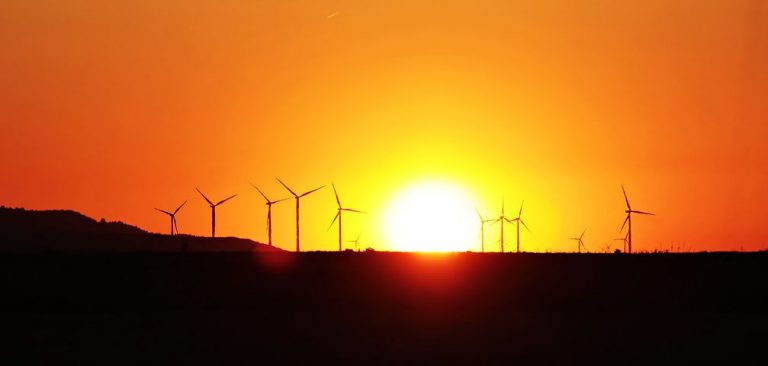The UK has announced plans to reduce its greenhouse gas emissions to the point where they would reach zero by 2050. If achieved, it would make the UK the world’s cleanest country.

Around 500 million tonnes of CO2 is emitted throughout the UK annually as of October 2018 though. Guidance from the Committee on Climate Change has been formally sought by the government about how and when the UK could bring this number down to zero though, with the move prompted from the release of a UN report which warned that CO2 emissions must be entirely stopped if dangerous climate disruption is to be avoided.
“The report was a really stark and sober piece of work —a good piece of work,” commented the UK’s climate minister, Claire Perry, to BBC News. “Now we know what the goal is, and we know what some of the levers are.
“But for me, the constant question is: what is the cost and who’s going to bear that, both in the UK and in the global economy. The question is: what does government need to do, where can the private sector come in, and what technologies will come through?”
To shine the spotlight on the scale of the task that the UK has given itself, specialist Audi service plan providers Vindis identify three changes that must be made across the nation in order for the challenge to succeed…
Low-carbon fuels need to be used more
A large step towards the UK cutting its greenhouse gas emissions to zero will be achieved if individuals and businesses throughout the nation began to increase their use of low-carbon fuels.
At least things appear to be heading in the right direction where this topic is concerned. In figures compiled by Imperial College London and reported on by The Guardian, the capacity of renewable energy in the UK surpassed that of fossil fuels for the first time. With the amount of renewable capacity trebling in the same five-year period that fossil fuels decreased by one-third, the capacity of biomass, hydropower, solar and wind power hit 41.9 gigawatts and the capacity of gas, coal and oil-fired power plants recorded in at 41.2 gigawatts between July and September.
“Britain’s power system is slowly but surely walking away from fossil fuels, and [the quarter between July and September] saw a major milestone on the journey,” pointed out Dr Iain Staffell, who carried out the research for Imperial College London.
In a record for the UK, the nation was successful in being powered without the use of coal for three days in a row last year. The official time stood at 76 hours. This was before a report from Imperial College London which was commissioned by Drax suggested that coal supplied only 1.3 per cent of Britain’s entire use of electricity during the second quarter of 2018 — furnaces based at coal-fired power stations throughout the country were completely unused for 12 days in June last year too.
Homes need to be better insulated
A BBC News articlefrom February 2017 underlined that the UK would need to reduce carbon emissions by 80 per cent between the date that the piece was published and 2050. What’s more, a third of those carbon emissions had been recorded from heating draughty buildings across the nation.
One problem in particular is that the insulation standards which will be enforced from 2050 will see 25 million homes already in existence failing to meet the targets which are being introduced. This is according to a report that was sent to Parliament by experts from the Green Building Council — a group of leading construction firms — with the solution being that the affected properties will need to be refurbished to the highest standards. According to calculations, these findings mean that the rate of refurbishment stood at a rate of 1.4 homes needing to be worked on every minute as of the beginning of 2017.
Cutting carbon emissions is just one benefit to conducting this work. The Green Building Council’s head Julie Hirigoyen explains: “People will have warmer homes and lower bills; they will live longer, happier lives; we will be able to address climate change and carbon emissions.
“We will also be creating many thousands of jobs and exporting our best skills in innovation.”
Fuel-efficient vehicles need to catch the eye of more motorists
In 2040, the UK government has already revealed that it is aiming to ban the use of all new diesel and petrol cars and vans across the nation. While we may be a couple of decades away from seeing this ban come into force, which aims to make the UK’s roads cleaner, it appears that an increasing number of British motorists are already exploring what’s available when it comes to alternative-fuel vehicles.
Next Green Car has reported, for instance, that there has been an increase of new registrations of plug-in cars — from 3,500 models in 2013 to over 195,000 units come the end of January 2019. Furthermore, figures released by the Society of Motor Manufacturers and Traders highlighted that electric car sales across the UK has shifted from only close to 500 being registered each month in the early part of 2014 to an average of 5,000 per month throughout 2018.
Due to sustained government and private investment, we’ve also witnessed improvements being recorded regarding the UK’s infrastructure in order for it to cope with more alternative-fuel vehicles being on the road. While the UK’s network of electric vehicle charging points was recorded in at just a few hundred units as of 2011, there had been more than 5,800 charging locations, 9,800 charging devices and 16,700 connectors installed by June 2018.
We’re likely to be quite a while off seeing only alternative-fuel vehicles on roads across the UK. After all, the latest vehicle data from the SMMThas stated that the car registrations market share for January 2019 was 64.08 per cent petrol, 29.08 per cent diesel and 6.84 per cent alternative-fuel vehicles, for example. However, it at least appears that things are moving in the right direction.
The UK attempting to reduce its greenhouse gas emissions to zero by 2050 certainly isn’t going to be easy for the nation to achieve. Fortunately, some of the examples covered in this article does at least suggest that efforts are being made to ensure the nation reaches its goal.





Leave a Comment